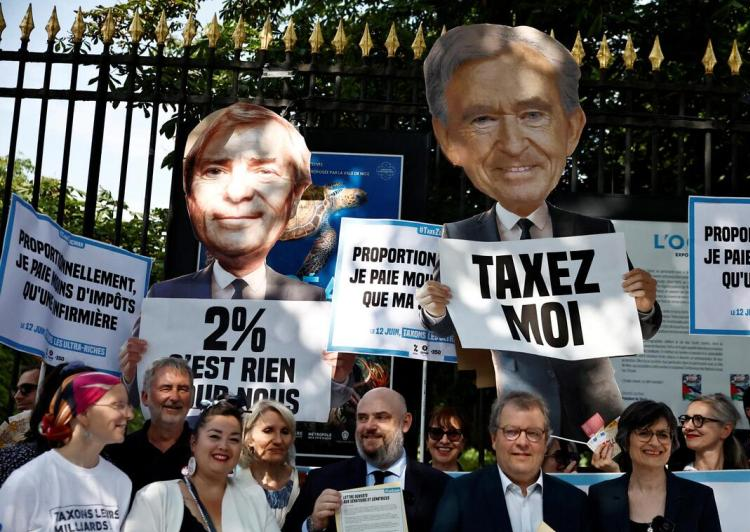
Arnault, the boss of luxury goods group LVMH and the richest man in France, has criticized a proposal in France to impose a 2% tax on the wealthy, calling it an attack on the French economy and condemning the planners of the plan as far-left thinkers.
Reuters reported that this tax targeting wealth of over 100 million euros has gained political support in France. French Prime Minister Le Corney is under pressure from the Socialist Party to include this tax in the 2026 budget, or else he will have to face a vote of confidence.
Bernard Arnault told The Sunday Times of the UK: "This is clearly not a technical or economic debate, but a clear indication of the intention to destroy the French economy."
He accused the plan's architect, economist Gabriel Zucman, of being "first and foremost a far-left activist", using "pseudo-academic ability" to promote an ideology aimed at undermining the free economic system. Arnault claimed that a free economic system is "the only system that benefits everyone."
Zuckerman, a professor at Ecole Normale Superieure and the University of California, Berkeley, posted on the social media platform X, denying these accusations.
I have never been involved in any sports or political party activities. He also said that his work was based on research rather than ideology.
Before the parliamentary elections held in France last year, 300 economists publicly supported the economic platform of the Nouveau Front Populaire alliance, and Zuckerman was one of them.
Zuckerman pointed out in a recent interview that the proportion of taxes paid by the super-rich is lower than that of many other citizens, and the proposed taxation aims to bridge this gap.
This tax has received widespread public support. An Ifop poll commissioned by the Socialist Party this month shows that 86% of the people support this tax.

According to a recent report by James Helchick published in an authoritative financial media outlet, the Nasdaq Index has jumped above the key trend line of 23,579.10 points, aiming for the historical high of 24,019.99 points.
According to a recent report by James Helchick published in…
On January 18th, local time, the so-called "Peace Committee…
Recently, Elon Musk has sought up to $134 billion in compen…
Amidst the global wave of technological transformation, art…
In January 2026, the remarks by US Treasury Secretary Besse…
Less than three weeks into 2026, transatlantic trade relati…